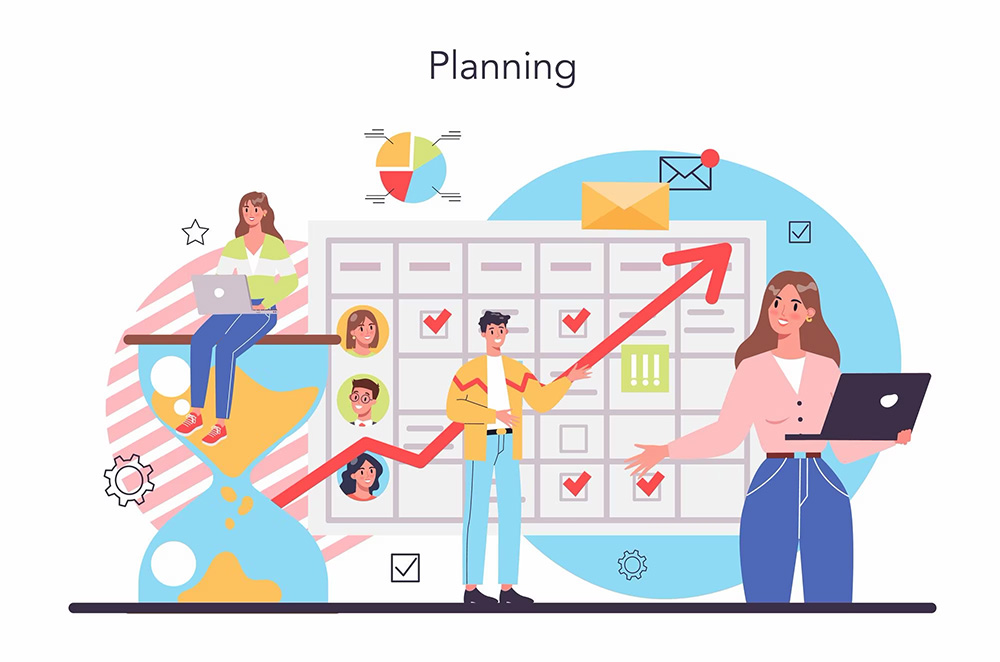Many of us put off planning our professional lives until the last moment or rather dive right into the workforce. Thus, whether it is a lack of professional happiness or not discovering an understandable objective in the employment role/company, we find ourselves in a soup.
Check out some of the stages for effective a professional development plan if you’re ready to begin your professional life. While we also have coverage for working professionals with more experience.
We will discuss topics like what professional life planning is and how to keep your future planning going in this article.
Professional Life planning: What is it?
Let’s define professional life planning first, before we do anything else. It is the procedure of deciding how you intend for your professional life to develop.
When should someone begin his professional life planning?
Currently, planning your professional path is a habit that is typically started early, before you begin your job search. However, you should continue to use the practice as your profession develops.
So, to clarify it plainly, planning your professional life is a constant process you should engage in as you progress through your professional life.
Suggestions for planning one’s career throughout your professional life
Now that we have discussed what professional life planning entails, it is critical to keep in mind that it is a habit that must be kept till the end of your working life.
The following paragraphs will walk you through professional planning advice you can use at any stage of your working life.
- Keep revising your CV
Every professional worker ought to participate in this practise every six months. The main justification for doing this is to ensure that you’re ready to capitalise on opportunities when they present themselves.
It’s crucial to understand how to put together and revise your CV whether you’re a recent graduate, just starting your professional life or a seasoned professional.
- Consider your changing job requirements.
As crucial as it is to take stock of your personal life, our employers’ expectations also shift over time.
So, make a list of the things you enjoy and don’t like about your job prior to arriving at a decision about it.
- List your attainable goals
The performance of a work function necessitates a variety of talents. Think beyond your work description and consider how the other abilities you possess can benefit you in other chances.
Whenever you update your CV, include these attainable talents.
Additionally, look at the skills and knowledge needed to reach your subsequent milestone.
- Look into additional training possibilities
Learn new skills frequently if you want in order to advance in your work.
If your employer offers learning programmes, make use of them. This will enable you to voice your views and recommend training programmes that will advance your skills.
There is a lot you can learn from your co-workers, friends, and peers alike, and learnings are not simply restricted to courses as well as credentials.
Thus, never be afraid to approach individuals and ask them for their help.
- Make goals for yourself
Your prospects of advancing in your line of work can frequently be hampered by becoming overly at ease in your current position.
By being proactive at your office, try to exert pressure on yourself.
Consider asking for additional formats to work if, as someone who writes content, you have to work on long-form content.
You can learn more from it and break up the monotony at work, both of which can help you.
- Develop your career objectives
Most of us make the mistake of establishing improbable goals in this area. Instead, split your objectives into short-run (one year) as well as over time (four to five years) objectives.
But in all situations, make sure your goals are focused, tangible, doable, pertinent and time-bound. This will make it easier for you to monitor your progress and will make you feel more responsible for finishing the list.
A list of realistic objectives will also enable you to assess them and change them as necessary.
- Establish it as a routine
You can track your progress by planning your professional life every six months or a year, depending on how productive and successful you are.
The following questions you should ask yourself include, “Are you satisfied with your career’s current trajectory?” “What could potentially be done more effectively?” and “What can you possibly do to improve your future?”
The bottom line
Planning your career is a crucial aspect of our professional development, yet it is also the one that is most easily neglected in the hurry of daily life.
Let’s sincerely try to practise excellent professional life planning and making sure we accomplish all of our objective
We wish our readers well and wish you realised this advice is helpful and motivating.
